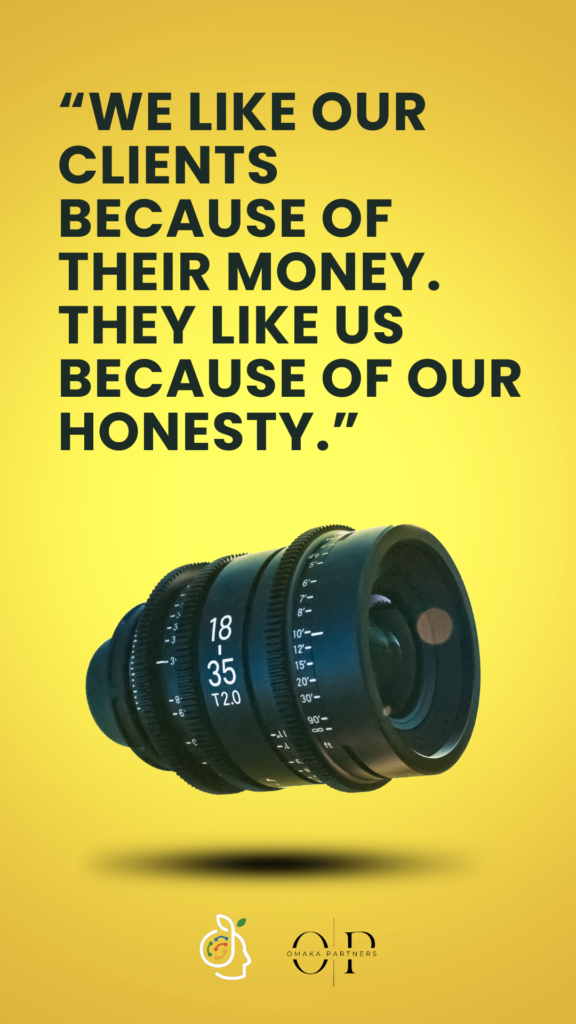Advice
The Delicate Art of Asking for Film Funding
Crafting an effective pitch for your film isn’t just about showcasing your project; it’s also about presenting yourself as a professional, collaborative partner. Let’s delve deeper into each key strategy, emphasizing transparency, humility, and respect for the industry’s dynamics.
1. Know Your Audience: Imagine you’re pitching a horror film to a distributor known for producing family-friendly content. Instead of pushing your project blindly, acknowledge their usual genre preferences and tailor your pitch accordingly. Express your understanding of their audience and demonstrate how your film could align with their interests, even if it’s outside their typical scope.
2. Create a Comprehensive Package: Picture yourself as a producer receiving a pitch. You’d want all necessary materials neatly organized, right? Treat your pitch package like a gift to your potential partners. Include a well-written script, a compelling synopsis, a catchy logline, and a visually appealing lookbook. Don’t forget to highlight your team’s strengths and past achievements in the bios section. By presenting a polished package, you show respect for their time and attention.
3. Demonstrate Expertise and Passion: Imagine you’re discussing your film with a seasoned producer. Instead of overstating your knowledge or downplaying your enthusiasm, strike a balance. Share your insights on the subject matter and filmmaking process, but remain open to feedback and collaboration. Adopt an attitude of continuous learning and improvement, showing that you’re receptive to constructive criticism and willing to adapt.
4. Leverage Relationships: Put yourself in the shoes of someone approached for a referral. You’d likely be more inclined to help if the person seeking assistance is humble, appreciative, and respectful. When reaching out to industry contacts for introductions, acknowledge the value of their relationships and offer something in return, whether it’s gratitude, assistance, or collaboration opportunities in the future.
5. Practice and Refine: Imagine you’re delivering your pitch to a busy producer. They appreciate brevity and clarity, so rehearse your pitch until it flows naturally and succinctly. Avoid unnecessary jargon or self-aggrandizement. Instead, focus on communicating your story, vision, and passion in a way that resonates with your audience. Be prepared to address questions and concerns with humility and honesty.
6. Follow Up and Persist: Consider the perspective of a producer receiving numerous pitches daily. They’re more likely to remember those who follow up professionally and persistently without being pushy. After your initial pitch, send a polite follow-up email expressing gratitude for their time and reiterating your enthusiasm for the project. Respect their decision, whether it’s a yes, no, or a request for further discussion.
In conclusion, navigating the film industry requires not only talent and creativity but also humility, transparency, and respect for established relationships. Invest in yourself by honing your craft, cultivating genuine connections, and approaching each interaction with authenticity and humility. While it’s essential to advocate for your project, remember that success often comes from collaboration and mutual respect.
For comprehensive consulting services and strategic marketing tailored to your film’s success, look no further than BolanleMedia. Our reputable team offers direct access to distribution channels, investors, and a roster of top-tier talent, ensuring your project receives the attention and support it deserves. Let us guide you through every stage of the filmmaking journey, from concept to distribution, and turn your cinematic vision into a reality. Reach out to BolanleMedia for all your business needs and watch your film thrive in the competitive landscape of the entertainment industry.
Advice
How to Make Your Indie Film Pay Off Without Losing Half to Distributors

Making an independent film is often a labor of love that can take years, countless hours, energy, and a significant financial investment. Yet, for many indie filmmakers, the hardest part is recouping that investment and making money once the film is finished. A common pitfall is losing a large portion of revenue—often half or more—to sales agents, distributors, and marketing expenses. However, with the right knowledge, strategy, and effort, indie filmmakers can maximize their film’s earnings without giving away so much control or profit.

Here is a comprehensive guide to keeping more of your film’s revenue and ensuring your film gets the audience and financial return it deserves.
Understanding the Distribution Landscape
Most indie filmmakers traditionally rely on sales agents and distributors to get their films to audiences. Sales agents typically take 15-20%, and distributors can take another 20-35%, easily cutting your revenue share by half right from the start. Additionally, marketing costs that may be deducted can range from a few thousand to upwards of $15,000, further eating into profits. The accounting is often opaque, making it difficult to know how much you truly earned.
Distributors nowadays tend to focus on worldwide rights deals and use aggregators to place films on streaming platforms like Amazon, Apple TV, and Tubi. These deals often do not fetch the best revenue for most indie filmmakers. Many distributors also do limited outreach, reaching only a small number of potential buyers, which can limit the sales opportunities for your film.
Becoming Your Own Sales Agent
One of the most important shifts indie filmmakers must make today is to become their own sales agents. Instead of relying entirely on intermediaries, you should learn the art and business of distribution:
- Research and build an extensive list of distributors worldwide. Top filmmakers have compiled lists of hundreds of distributors by country and genre. Going wide increases your chances of multiple revenue deals.
- Send personalized pitches to hundreds of distributors, showcasing your finished film, cast details (including social media following), genre, logline, and trailer. Ask if they want to see the full feature.
- Don’t settle for a single distributor or a big-name company that may not prioritize your film. Instead, aim for multiple minimum guarantees (MGs) from niche distributors in individual territories like Germany, Japan, and the UK.
- Maintain transparent communication and track every outreach effort carefully.

Pitching and Marketing Tips
When pitching your film:
- Highlight key genre elements and target audience since distributors are often risk-averse and look for specific film types.
- Include social media metrics or fanbase counts, which can make your film more attractive.
- Provide a strong one-minute trailer and a concise logline.
- Be prepared for rejections; even a 5% positive response rate is success.
Marketing is also crucial and can’t be left solely to distributors. Understanding and managing your marketing efforts—or at least closely overseeing budgets and strategies—ensures your film stands out and reaches viewers directly.
Self-Distribution and Hybrid Models
If traditional distribution offers no appealing deals, self-distribution can be a viable option:
- Platforms like Vimeo On Demand, Amazon Prime Direct, and YouTube allow you to upload, price, and market your film directly to audiences while retaining full creative and revenue control.
- Aggregators like Filmhub and Quiver help place self-distributed films on multiple streaming services, often for a reasonable fee or revenue share.
- The hybrid distribution model combines some traditional distribution deals with self-distribution, maximizing revenue streams, audience reach, and control over your film’s destiny.
Takeaway: Be Proactive and Entrepreneurial
The indie filmmaking world is now as much about entrepreneurship as artistry. Knowing distribution essentials, taking ownership of your sales process, and actively marketing your film are no longer optional—they are key for financial success.
By investing time in outreach, exploring multiple territories, securing minimum guarantees, and considering hybrid or self-distribution approaches, indie filmmakers can keep more of their earnings, increase their film’s audience, and avoid being sidelined by opaque deals and slim returns.
The days of handing your film over to a distributor and hoping for the best are gone. The winning formula today is to be your own sales agent, marketer, and advocate—empowered to make your indie film pay off.
Advice
How AI Is Forcing Everyone Into the Entrepreneur Game

Remember when having an ordinary job felt safe? Those days are over. The arrival of artificial intelligence isn’t just automating tasks—it’s blowing up the very idea of job security and ushering in an era where adaptability and entrepreneurship aren’t optional, they’re survival skills. Welcome to the new game. Average is automated, and now, everyone needs to think—and act—like an entrepreneur.

AI Isn’t Coming—It’s Already Here (And It’s Taking Jobs)
It’s not sci-fi anymore. By 2025, AI and automation are expected to displace as many as 85 million jobs worldwide, from customer service roles to entry-level tech positions, with 13.7% of U.S. workers already reporting being replaced by robots or AI-driven systems. Young people are especially hard-hit: tech unemployment among 20- to 30-year-olds has jumped 3% this year alone in AI-exposed roles. And the impact isn’t slowing down. Analysts say up to 60% of jobs in advanced economies could see tasks automated in the near future, with 30% of workers fearing outright replacement.
Why Average Isn’t Enough Anymore
The old industrial world ran on “the bell curve”—reliably rewarding the middle. If you were competent, you were comfortable. But in the digital age, AI is programmed to do average things perfectly and instantly. Now, the top 10%—the specialists, the creators, the difference-makers—snap up 90% of the rewards, while the rest get left behind.

Enter: The Entrepreneur Game
Here’s the twist: being entrepreneurial isn’t just about starting a business. It’s about building a personal brand, mastering a specialty, and continually learning or creating something valuable that AI can’t easily duplicate. Tech isn’t killing opportunity—it’s changing what it looks like.
- 20 million Americans now expect to retrain for new, more creative or tech-forward careers in the next three years.
- The fastest-growing “jobs” are digital and entrepreneurial: creators, consultants, coaches, prompt engineers, content strategists, AI-human collaboration experts, and niche community builders.
- Nearly half of companies that adopted AI are now automating roles, but they’re also creating demand for new skills and products almost overnight—a perfect playground for entrepreneurial thinking.
Survival Guide: How to Play (and Win) the New Game
- Pick Your Niche: Get laser-specific. Being “good at business” is out. Being the best at “helping consultants automate YouTube marketing with AI tools” is in—and global.
- Build Digital Assets: Write, film, code, design, research—create things that can scale, sell, and build your brand, wherever you are.
- Stay Adaptable: Reskill, upskill, and don’t be afraid to jump into new industries. Today’s winners are the ones who can pivot quickly and ride the next wave, not cling to what worked last year.
- Own Your Audience: Whether it’s a newsletter following, a YouTube channel, or a private Slack group, your future depends on connecting with people who value what you do—AI can’t compete with real, human influence.

Bottom Line
AI didn’t just move the goalposts—it changed the field. Being “average” is now a risk, not a guarantee. The winners in this new economy aren’t waiting for work to come to them—they’re proactively creating, collaborating, and cashing in on the skills, products, and experiences AI can’t touch. The entrepreneur game isn’t just for founders anymore. Ready or not, it’s for everyone.
Advice
How to Absorb Books 3x Faster in 7 Days

Reading is one of the most powerful skills you can develop — but most people read far slower than they could, spend time on information that doesn’t matter, and then forget what they read a week later. The Triforce Method changes that. It’s a three-part strategy that helps you increase your reading speed, focus on the most important details, and actually remember and use what you’ve learned.

Strategy 1: Increase Your Baseline Reading Speed
The first step is to read faster — but not by rushing. Instead, you’ll train your brain and eyes to process information more efficiently.
1. Remove Your Internal Monologue
Most people “hear” the words in their head when reading. This subvocalization caps your speed to that of normal speech — about 200–250 words per minute. To double your speed, you need to see the words, not hear them.

Think about a stop sign — you don’t sound out “STOP” in your head; you just recognize it instantly. You can train this with tools like Spreeder (free, not sponsored), which flashes text at higher speeds and groups words together. This forces your brain to process visually rather than subvocally.
With practice, this feels natural — the author of this method went from 250 wpm to over 500 wpm in just a short time.
2. Use a Visual Tracker
Your eyes aren’t naturally smooth when moving across text — small jerks and backtracking slow you down. Try this:
- Look at your screen and move your eyes from left to right. Notice the small jitters.
- Now put your finger or a pen in front of you and track it smoothly. Immediately, your motion is more consistent.
A tracker (your finger, a pen, or even a cursor) keeps your eyes moving forward, prevents regression, and lets you maintain speed. Over time, increase your tracking speed. This alone can add another 100+ words per minute to your pace.

Strategy 2: Have a Reading Strategy
Speed means nothing if you waste time on unimportant details. The second step is knowing when to read fast and when to slow down — especially for non-fiction.
The 80/20 Rule
In most non-fiction books, 80% of the value comes from 20% of the content. The rest is often filler, examples, or repetition.
For example, in Atomic Habits, the core lessons are surrounded by stories and case studies. Using the Triforce Method:
- Read most sections quickly (internal monologue removed, visual tracker engaged).
- When you hit a “golden nugget” of advice, slow down, think about it, and absorb it.
The key here: adapt your speed based on content. Reading 700 wpm during a key concept will reduce comprehension — so drop to 500 wpm or less when it matters.
Avoid “highlighting every sentence” syndrome. Focus on what really moves the needle.
Strategy 3: Summarise and Consolidate
Reading faster and smarter means nothing if you immediately forget what you’ve read. The third pillar of the Triforce Method is about retention and application.
Summarising
After each page, summarise it in 1–2 sentences in your own words. Even “nothing important happened here” counts. This habit forces your brain to engage with the material and improves comprehension.
Consolidating
Especially for non-fiction, you must take action on what you read. Learning is about changing behavior, not just collecting ideas.
Example: After reading about habit tracking in Atomic Habits, actually start tracking your habits that day — don’t just file the advice away for “someday.” The author of this method even paused reading for 24 hours to implement changes before continuing.
If you don’t change anything after reading, you haven’t truly learned.

When to Use This Method
- Learning-focused reading: Non-fiction, textbooks, technical guides, exam prep — anytime speed, focus, and retention matter.
- Enjoyment reading: Fiction, poetry, or literature may not require all these techniques — unless you want to increase speed intentionally.
The Bottom Line
The Triforce Method combines:
- Speed – Removing subvocalization + using a visual tracker.
- Strategy – Applying the 80/20 rule and adapting your pace.
- Retention – Summarising and acting on what you read.
With consistent practice, you can double your reading speed, focus only on what matters, and actually remember and use the information.
If you’d like, I can also make a condensed, visually appealing infographic summarizing the three strategies in the Triforce Method so it’s easier to refer back to.
Do you want me to prepare that next?

 Advice2 weeks ago
Advice2 weeks agoHow to Make Your Indie Film Pay Off Without Losing Half to Distributors

 Entertainment4 weeks ago
Entertainment4 weeks agoWhat the Epstein Files Actually Say About Jay-Z

 Business2 weeks ago
Business2 weeks agoHow Epstein’s Cash Shaped Artists, Agencies, and Algorithms

 Entertainment3 weeks ago
Entertainment3 weeks agoWhat Epstein’s Guest Lists Mean for Working Filmmakers: Who Do You Stand Next To?

 Film Industry2 weeks ago
Film Industry2 weeks agoWhy Burnt-Out Filmmakers Need to Unplug Right Now

 Business3 weeks ago
Business3 weeks agoNew DOJ Files Reveal Naomi Campbell’s Deep Ties to Jeffrey Epstein

 News4 weeks ago
News4 weeks agoCatherine O’Hara: The Comedy Genius Who Taught Us That Character Is Everything

 Entertainment2 weeks ago
Entertainment2 weeks agoYou wanted to make movies, not decode Epstein. Too late.





































